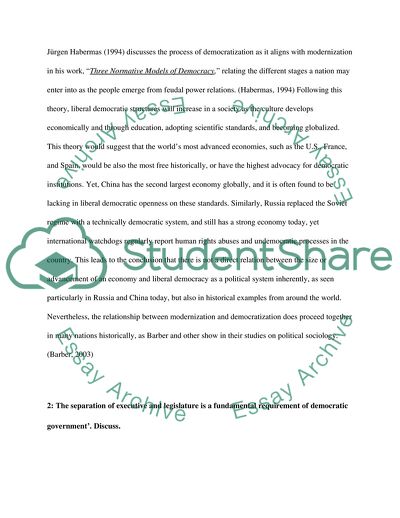Cite this document
(The Liberal Democratic Model of the Modern State Assignment Example | Topics and Well Written Essays - 1500 words - 1, n.d.)
The Liberal Democratic Model of the Modern State Assignment Example | Topics and Well Written Essays - 1500 words - 1. https://studentshare.org/politics/1751103-comparative-politics-and-governance
The Liberal Democratic Model of the Modern State Assignment Example | Topics and Well Written Essays - 1500 words - 1. https://studentshare.org/politics/1751103-comparative-politics-and-governance
(The Liberal Democratic Model of the Modern State Assignment Example | Topics and Well Written Essays - 1500 Words - 1)
The Liberal Democratic Model of the Modern State Assignment Example | Topics and Well Written Essays - 1500 Words - 1. https://studentshare.org/politics/1751103-comparative-politics-and-governance.
The Liberal Democratic Model of the Modern State Assignment Example | Topics and Well Written Essays - 1500 Words - 1. https://studentshare.org/politics/1751103-comparative-politics-and-governance.
“The Liberal Democratic Model of the Modern State Assignment Example | Topics and Well Written Essays - 1500 Words - 1”. https://studentshare.org/politics/1751103-comparative-politics-and-governance.


